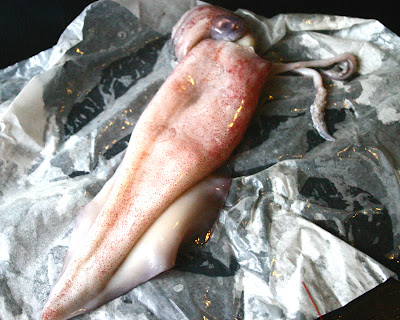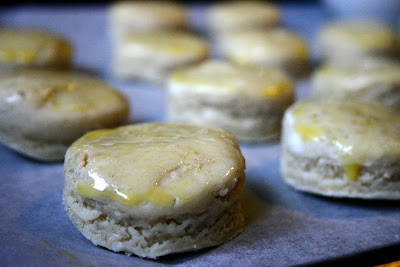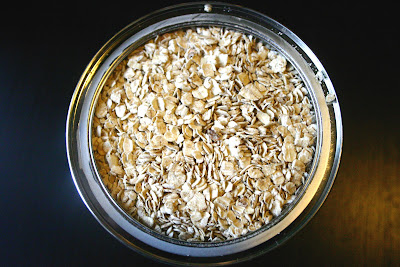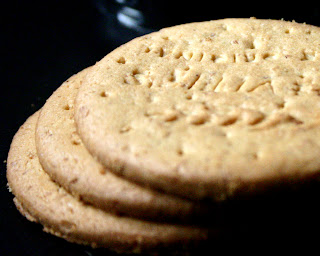Let me just clarify: I am not trying to be fancy. I am not calling this recipe polenta bread instead of plain old corn bread because I want to give myself airs. The truth is I used polenta flour in it and my impression is that it is ground a little coarser than corn meal. I am however not so sure about this anymore, after some research on the Internet. There seem to be very discordant opinions. Some vouch they are exactly the same thing, others say the flour used to make polenta is coarser. Who knows? What matters is that they are pretty interchangeable and so let's just say I called it polenta bread in honor of the country I live in.
Before you read this, I apologize to all corn bread purists. I know to you corn bread is sacred and I will understand perfectly if you skip on to another post with mild annoyance. It has happened to me many a time and a few posts I read this morning got me thinking. How important is it to exactly execute a traditional recipe? Is there a right way to cook something in the world we live in today, where everything is going global and fusion is ever more popular? In a world where food bloggers are inspiring each other to cook recipes from every corner of the planet, using new ingredients and techniques?
I started thinking about this when I commented on Taste of Beirut's new post.
Joumana asked herself why she had never thought of doing something before that saved her lots of time cooking a traditional recipe. My guess is that when you have been taught to do something a certain way, it is so imprinted in your being that it is sometimes hard to think of a simple change that will be helpful and that may seem obvious to someone from another background. Then, when I read Design, Wine & Dine's
new post, she mentioned substituting one ingredient for another missing one. Mind you, they are both ingredients that are very much used in that cuisine and I am sure either way, the dish is delicious. But as I read the post after my morning reflections, I couldn't help picturing a Maroccan somewhere tsssk-tsssking because this foreigner had ruined his/her mother's recipe.
Now, I live in a country where tradition is everything. Recipes have been made just so for decades, even centuries. In Italy you cannot even speak of regional cuisine, it is more a local cuisine. I have read endless debates on whether pumpkin ravioli should be made with or without adding amaretto cookie crumbs to the filling. These ravioli are typical of the Mantua area (even this may raise a debate...) and if you move just a few kms north or south the dogma changes. It basically boils down to how your nonna made them. That is the recipe, the only way to make something here.
I think I have already mentioned how Italian men will sit at a restaurant eating a plate of pasta and dissect the recipe, comparing what each of their mothers used when making the same dish. Whole meals are spent talking about food. That is why often it is said that Italian cuisine is one of the best in the world, but that it is a touch too traditional, static. Many of you Italian readers right now are probably thinking your food is so good that there is no need to change it, right?
The complete opposite example is Australia, with its everchanging, innovative cuisine influenced by a variety of cultures and ingredients. It is a reasonably young country and as all things young, it is more open to change.
I will admit to cringing or feeling a little snooty at times when I read how someone cooks a risotto or ruins something as simple as a Caprese. I mean, certain techniques or ingredients were chosen because after years of experimenting they turned out to be the best possible choice for that dish. If something has a name, like the above mentioned Caprese, then why make it with avocado and still call it a Caprese? We all feel that when someone goes and violates something that is a part of our history, our heritage or even simply our family tradition, something we have eaten countless times made that way by someone we love, it is wrong. But then we feel equally free to play around and experiment with recipes from other countries by adding, adjusting or substituting ingredients.
The truth is that sometimes a person with a different cooking experience has a new and fresh take on things and they can teach us that change is not a bad thing. More often than not, change is positive and it is only by experimenting and trying that we can come up with something new and perhaps outstanding.
What do you think? Are you a purist or do you like to be adventurous?
This polenta bread is a sweet version of your typical corn bread. It is perfect with a cup of tea or coffee. You can eat it on its own or spread it with jam. It has a wonderful crumb and is rich and moist. I substituted the cup of milk in the original recipe I found on About.com with 1 cup of ricotta and a 1/3 cup of cream I had in the fridge. I also used olive oil instead of canola oil. I used up all the open dairy products in my fridge and came up with a perfect breakfast.




















































